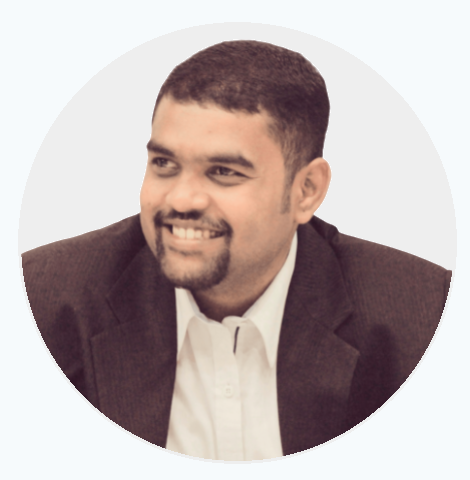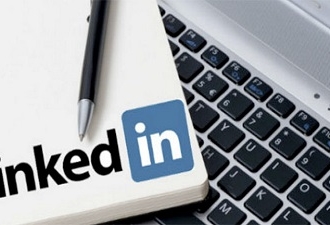For most of us, this quarantine has turned out to be a difficult time. A sudden change in our daily routine, being unable to go out and get some fresh air and a lot of time in hands with nothing to do but overthink are things that can easily get to us.
Quarantine is trying to break us both economically and socially. Do we want it to get to our emotional strength too?
That is why we have with us Scott Aaron, speaker, two times bestselling author and human connection expert. He shares with us his views on how to use a crisis to strengthen oneself. As the Chinese proverb goes, the gem cannot be polished without friction, nor man perfected without trials.
Podcast Highlights:
00:10 – Introduction
02:17 – Tool of Human connection
03:34 – Most successful people are the ones willing to fail
04:12– Isn’t Resilience more than just being a fearless person?
04.58 – Starting my business at the age of 18
07:45 – How can an entrepreneur prevent oneself from being an obstacle?
08:20 – Your mind will always trick you doing what is comfortable
13:40 – How can a leader make his people feel resilient during these difficult times?
14:55 – Listening to the needs of your employees
17:37 – What is the relevance of human connection in this hugely distracted world?
18:23 – People are craving two things, connection, and community
21:35 – How to reach out to Scott Aaron?
22:00 – A free gift to the listeners from Scott Aaron.
Guest
Special thanks to Scott Aaron for joining this amazing episode. This is incredibly advantageous if you have your own podcast to promote, since the audience is already listening to podcasts, meaning they’re much more likely to subscribe to your own podcast.

Scott Aaron
Personal CoachBusiness Coach For Personal Branding & Business Growth, Human Connection Expert
Transcript:
RK: Welcome to the TGL podcast as a 22 year veteran of health, wellness, and personal coaching industries, but most importantly, being the father to a beautiful little boy. He has learned the importance of not taking care of one’s body, but more importantly the mindset and loving each day with the utmost happiness.
He wakes up every day with a growing passion to spread his mission and passion for teaching others how to create a human connection, build their brand, and grow their wealth through the means of LinkedIn. He is the creator of LinkedIn lead generation, two times bestselling author, speaker, a top podcast host, human connection expert. Let me welcome Scott Aaron to the TGL podcast. Hey, Scott,
Scott: How are you? and it’s an honour and pleasure to be here and just grateful for the opportunity to share.
RK: Absolutely Scott! so we are really excited about your topic. Not only because, it’s so powerful, but it is very relevant in today’s time. So I invite you to speak about being resilient, overcoming obstacles and creating wealth through human connections.
Scott: Yes. So it’s one of those things where, you know, I learned this through my own trials and tribulations of life and, you know, in the world that we’re in right now, even before what’s going on right now, there, there’s always hacks and shortcuts of how to grow our businesses, whether it’s through a click funnel or an email sequence or an opt-in whatever it is.
And what I’ve learned over the last 22 plus years of being in the coaching world, is that there is one business tool. There’s one tool that people really minimise, as the most important tool out there. And that’s human connection.
You know, there there is no opt-in for human connection, there is no click funnel for human connection. You have to create it.
And you create human connection by building trust, building rapport, building relationships, being a good listener communicating with people, and I really feel in today’s world, everyone’s social media ego is running their life. How many followers Can I get? How many likes and comments and shares and views Can I get all my content because, for some reason, those things are filling people’s cups.
But they’re not doing anything to their bank account, nor the impact on the people around them. So what I learned about human connection that number one, you know, life is a rollercoaster ride. It’s not a straight line. The people that are coasting through life, you know, not wanting to ruffle any feathers are the ones that are struggling the most. They don’t want to be challenged. They don’t want to face adversities. They don’t want to face challenges and obstacles.
But what I’ve learned, the most successful people are the ones that are willing to fail the most often. They are the ones that are willing to face the most obstacles they are, they are willing to get uncomfortable, they are willing to move forward no matter what. So for me, being resilient, overcoming obstacles, failing as often as you can also innately leads you to being a great human connector because you’re going to have a lot of conversations. You’re going to network with a tonne of people and you’re going to leave the greatest amount of impact left behind
RK: Absolutely, a lot of people think that resilience is all about being fearless. But I think that you know, resilience is more than just, you know, being a fearless person. What are your takes on that?
Scott: I think being resilient is bobbing and weaving, you know, there’s always going to be things that come up in your life and just to be, you know, transparent with the listeners, you know, everyone sees the glory, but they don’t know the story in the last 23 years.
You know, I had to go through a lot of seasons in my personal and business life, starting with my father, going to federal prison for two and a half years when I was 18 and a half. And that actually led me into starting my own business, which was my family’s existing fitness business.
So I had to learn at a very early age. How to be resilient, how to overcome obstacles, how to lead people, how to build teams, how-to, you know, manage things, not only myself but other people around me, but also selling both gyms for you know, we opened up a second gym when my father came back and we ended up selling both for a million dollars.
Three years later, we opened up a third and final location, everything was in my name. So I ended up being $1.5 million in liability debt. I was married and divorced twice between 2009 and 2015. I lost the house I had to file for personal bankruptcy, there was a lot of things that happen. So, life is not a straight line.
So when you learn that resiliency is actually a superpower, when you understand that no matter what is being thrown at you, thrown at us or whatever it is, and you figure something out. Every problem has a solution. There is nothing in this world. I don’t care what it is this pandemic, whatever it’s going on, they’re working on a solution, because that’s the thing. When you live in the solution and you don’t live in the problem, you’ll figure out a way to bob and weave through that situation through that obstacle, be resilient, move forward, and move past it. And I always tell people, you have to go through life, like the flow of water. You know, sometimes the seas are a bit rough. So it’s a little bit difficult of a journey. And other times it’s very free flowing and you’re just going rate with the current. But if you keep putting dams up, and you keep blocking the flow of water, how do you ever expect to move forward so I always keep the dams down. I keep going with the flow, and whatever comes at me, I figured out a way of how I can work through it.
RK: That is really good. So like you said nothing in this world is unfixable. Right? And it is that much more relevant when you know you have deep human connections, when you are ready to let go of what is holding you back and open up and be vocal about it with the other person, right? without getting distracted.
So, I also would like to ask you a question a lot of entrepreneurs these days, at least the millennials, the billionaire entrepreneurs, they always look at obstacles as an external thing. Right? But a lot of people, because since we’re living in such a distracted world, how can an entrepreneur prevent himself or herself from being an obstacle?
Scott: Well, that’s a great question. And I don’t think there’s actually an answer to that because I don’t think there’s any specific way to not be the obstacle, because we’re always going to get in our own way. Ways whether, no matter how high level the person is, no matter how much personal development they’ve done, no matter how much meditation they do, and whatever it is, we’re always an obstacle.
And as long as you understand that your mind will always try to trick you into doing what is safe to do, what is comfortable, then you’ll understand that that’s an obstacle that you’re always going to have to face and you’re going to have to face that adversity.
So what I’ve understood in all of my ups and downs, I will always be an obstacle. Because the one thing when you’re growing your own business, when you’re an entrepreneur, you can’t remove yourself from the equation. If you remove yourself from the equation, the equation doesn’t exist.
So when you can understand that, you know, you’re good to be an obstacle and you’re going to face obstacles. And you have to understand that it’s all a mindset shift. So when something comes up, and my mind gets the best of me, and there’s a lot of negative self talk or a lack of belief, I sit with it. And I asked myself one question, and this one question actually grounds me and validates what I’m feeling or what I’m thinking. And I’ll ask myself, how does this thought serve me?
And when I asked myself that question, it presents itself because if I’m thinking to myself, you know, this is never gonna work. You know, I’m just gonna fail. This sucks. It’s going to be a huge disaster, right? And I asked myself, how does this serve me? And when I answer that question, this doesn’t serve me at all. I realised that was just an obstacle I had to overcome. And it’s just my mind trying to play a trick on me.
So again, you know, the biological brains that we have. We’re always meant to play it safe. Getting uncomfortable, is very uncomfortable. And it’s also very unnatural. So the more that you can ask yourself that question, how does this thought serve me? And if it doesn’t serve you, it’s completely made up. It’s a story, it doesn’t exist, then you know the truth. And then you can move forward.
RK: It’s great so… when you know when can this trigger be activated? So when things doesn’t work, the way that you expect is that when you ask yourself this question, or how do you or when is the right time to ask this question?
Scott: I don’t think there’s a perfect time. I think we all know that. You know, The only time we have is right now.
And I think when things I was saying to my future wife last night, we were in bed and we always, for some reason, we always start brainstorming way before we’re going to go to sleep, which is the worst thing to do, because then it’s hard for us to fall asleep. But I said to her, I said, you know, this quarantine, because we work from home anyway. So I mean, we’re always quarantined. I said this is the universe’s way of telling us. Listen, I’m giving you 60-90 days to really get your business together.
And don’t make any excuses because now you have all the time in the world. No one can go anywhere, people are more available than ever to talk into a network. So I don’t want to hear your excuses. I’m giving you the time. So the best time is always the present time.
And my other thing is that you never want to wait for something to happen where you then have to react emotionally, the more that you can be in control of the emotions of what you’re doing. And again, we can plan the best that we can. But things always come up. But what I’ve learned is being resilient and overcoming obstacles is like a muscle. The more resilient you are, the more obstacles that you overcome, the more familiar it is, so it’s not uncomfortable. So it’s just like another thing. So you’re almost pre programming your mind and your body to overcome that something because then you know, you know what, this is another season of life and you know, I’m going to work through it.
The seas are going to be rough for a little while and I’m going to come out better on the other end, so I don’t feel there’s a time where you need to look out for it, you just have to be very present in the moment and recognise what it is, and then start to the gameplan. How do I flow through this like water? How do I not let this current situation get the best of me?
RK: Thanks for sharing that.
Also, how can a leader impart the lessons of resilience with their team members, because these days, a lot of people are working in a distributed remote environment. And it’s not easy. A lot of employees, a lot of team members, maybe it’s the first time they working from home for such an extended amount of time. And there is always this uncertainty that they may lose their job or the scope is reducing and they have more free time than they used to. So how can we lead and impart these lessons of resilience to the team members?
Scott: Yeah, I think it’s what I was, I mean, I still have teams that I work with, but now it’s virtually but I think it’s a top down mentality. I think the way that you handle things. You know, you think about being a parent, you know, My son, they learn from their parents. So if they see you freaking out about something, if they see you overreacting about something, if they see you being overly emotional about something that’s gonna be inherently a response that they’re going to adapt to.
If you think about the same thing about business, if your employees see you freaking out, they see you ripping your hair out, you don’t know what to do, you’re letting this uncertainty get to you. How comforting is that for your employees. So, again, it’s not faking it, but it’s understanding and, number one, listening to the needs of your employees. You know, everyone wants to be listened to because when someone is heard, when you, the business owner are listening to your employees. And you are hearing them, listening to their wants, their needs and, helping them cope with what’s going on. They’re going to be more loyal, they’re going to be more dedicated, and they’re not going to succumb to the current situation. But you as the leader, you as the boss, you as the employer, if you’re not listening to them, you’re basically saying, I don’t have time for your stuff. I’m trying to figure this out. You’re overly emotional, you’re reacting emotionally, you’re not reacting logically. You’re letting your emotions get the best of you.
How do you expect your employees to trust you or to feel comforted by you? Instead of making it about yourself, you have to make it about everybody else. So you have to first and foremost you have to be there for your employees. You have to let them know that number one, we’re going to get through this together. This isn’t just because I own the company, it doesn’t mean that we’re all not impacted together. But we’re going to get through this together, and we’re going to come out better on the other side. And the second thing is taking time, if you could individually set up a time to talk to each employee, what do they need most right now? How can I help you the most because when they know their boss, and their employer is there for them in the darkest of times, it sets a standard for the company that they’re working for, the team they’re a part of, and the mission that they all have together.
RK: So that’s also the relevance of human connection, isn’t it?
Scott: Yes. Absolutely.
RK: Not only with the potential prospects or customers or, you know, vendors, it could it is also very relevant for your team members and your family as well. I’d like you to talk about something.
Scott: Yeah, I think you’re right, human connection, it goes deeper than just in business. There’s an old saying the way that you do one thing is the way that you do everything. So, if you’re overly emotional at home, if you’re overly emotional with your kids, and your spouse and your friends, chances are you’re going to be overly emotional at work. So just pay attention to how you are in every single situation. And you’ll find that you can improve in every area of your life.
RK: I like to talk about, you know, the relevance of human connection in this hugely distracted world.
Scott: Well, you know, it’s funny.
I’ve been, you know, between all my coaching practices, I’ve probably logged anywhere between 70 to 75,000 hours of one on one time with clients and oh, For over that 23 years of working with people I’ve, I’ve gotten to know people very well. And I’ve gotten to understand how people work. And, the one thing that I know right now, especially with what we’re all going through, people are craving two things.
They’re craving connection. And they’re craving community. You have to understand as human beings, no matter, no matter how distracted we are, by technology, by social media, by our surroundings, when all of that is taken away, when globally we’re we are all forced to stay at home and we can’t see our friends. We can’t see our families. People start understanding what’s most important. And you’re seeing this now, all over the world. connection and community are two things that were greatly taken advantage of because they were so readily available, that we took it for granted.
And now that it’s been taken from us, it’s what we crave the most. So, you see people, you know, I do zooms with my family every week. You know, for the holidays, we did a zoom, zoom Seder during Passover with my family, you see families doing Easter together on zoom, all these amazing ways of how last night I played poker with my guys from high school, and I set up a zoom and we had the app on our phone, and we just so I’m grateful that these technologies exist, that allow us to still continue that connection and that community, but my simple message to everyone is when all this is said and done when we’re all slowly worked back into society.
We’re Going back to work, we have the ability to go to people’s houses, not in fear. Make sure that you really start paying attention to your core foundations. And every human being’s core foundation is connection. We all want to be connected to someone or something and don’t take it for granted next time.
So as readily available, can human connection was in person. It’s still readily available online the way that people do it now through Skype, through Google Hangout, through zoom through goto meeting all these ways, so take advantage of the ways that the world is still allowing us to connect with other human beings. And then when we’re allowed to get back to our new normalcy, make sure that you don’t ever take it for granted again.
RK: Thank you so much for this delightful and thought provoking conversation. I really enjoyed and I’m very sure that our listeners and viewers also will be able to understand, you know, and act upon these reminders.
It is very important to stay strong at this time especially and also to grow in their own ventures. So how can our viewers and listeners connect with you? How can they find you?
Scott: Yeah, I mean, my website houses all my basic information. It’s www.scottaaron.net or I’m very prevalent and omnipresent on social media. So on Facebook and LinkedIn, it’s Scott Aaron and on Instagram, it’s @scottaaronlinkedin and again, you know, I love human connection. So I highly encourage people to reach out and say hi
RK: Absolutely! see that you would like to give a gift to the listeners.
Scott: Yeah, there’s a link provided in the show notes. But also, if you guys go to my website, you’ll see a tab that says free infographic. And it’s a six step system of how to optimize your LinkedIn profile for more visibility and connection on the platform, which is what I teach. And it’s a free gift. It’s easy to download and easily implemented. And I hope it helps all of you.
RK: Thank you so much, Scott. And I hope that we can have one more conversation about how we can use or leverage LinkedIn. Especially these days when people are spamming the hell out of the inbox so I hope that we can connect on one more episode where we talk only about how we can generate density, LinkedIn
Scott: I would love to and you know, looking forward to coming back and thanks again for having me here today.
RK: Thank you very much, Scott. Talk to you soon.
Scott: Thank you.
***
For more queries, you can reach Scott at Scott Aaron, LinkedIn or through his Instagram profile. Here’s the offer Scott shared with us.





